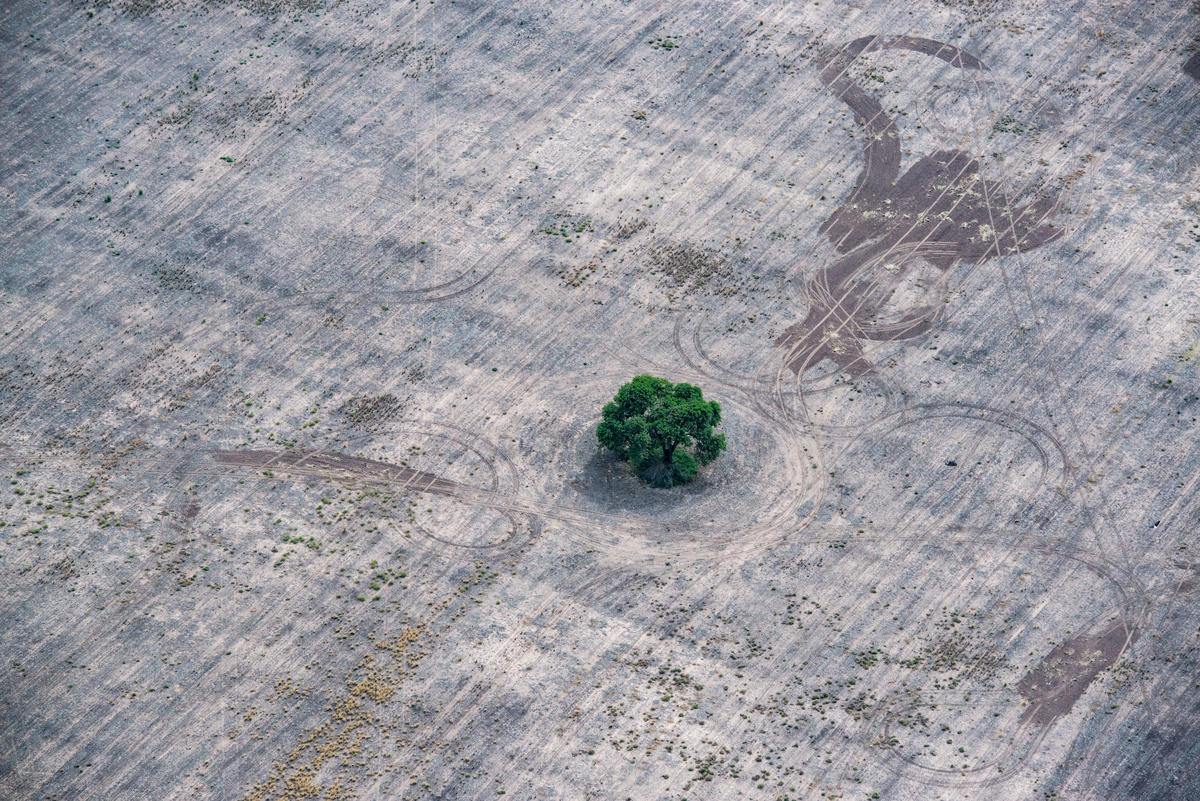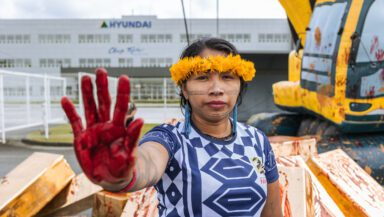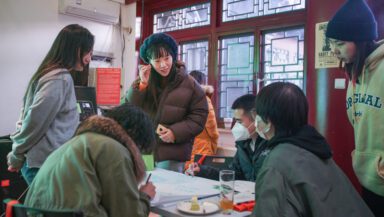The number of people in the UK going vegan or vegetarian has been increasing massively over the last few years. According to the Vegan Society, the number of vegans in the UK quadrupled between 2014 and 2019. Maybe they know something others don’t?
As more and more people go meat-free, one aspect of a vegan and vegetarian diet has caused a lot of controversy: soya.
Since the 1950s, global soybean production has increased 15 times over. Massive areas of South American forests are being burnt and cut down to make way for soya plantations. This is having a terrible impact on the people and animals that call these forests home.
Plant eaters or planet eaters?
Growing soya in this way, and at such a massive scale, is not sustainable. But who’s eating it all?
Some point the finger at vegans and vegetarians. All that soya in tofu, soya burgers, soya milk must be the reason forests are being destroyed? Who else eats that much soya right?
Wrong. Most of the world’s soya is grown for the meat industry. Only 6% of the soya grown globally is eaten by humans. 90% of all soya is fed to chickens, pigs and cows. (The rest is used for things like pet food and biofuels.)
Over the past 50 years, meat production has more than quadrupled. Today, more than half the mammals on the planet are livestock, and the impact of this shift has been enormous. Grazing and feeding these animals takes up an area of land the size of North, Central and South America combined, and the industry produces nearly a sixth of global greenhouse gas emissions.

Previously forested land that’s been cleared for farming and agriculture in Chaco Province, Argentina © Martin Katz / Greenpeace
Despite this, meat and dairy still only provide a small part of the world’s protein and calories, compared to plants.
Of course food is about much more than just calories. But when there’s so much at stake, we have to start thinking about how to get the most out of what we have. More land and resources used to produce food means less space for wildlife to thrive. If meat and dairy consumption drastically fell worldwide, we could turn large areas back to nature.
Farmers deserve a mention too because they are key to this transition and must not be left behind. Companies and governments should support farmers to transition to more sustainable farming methods – ones that are mostly plant based. Retraining farmers in land management and conservation is another way to move forward. Both should provide good livelihoods for farmers and protect the planet and our health.
How do we fix it?
I know, it’s a lot to take in. Meat has been such a big part of many people’s diets for decades now. The truth is though, it hasn’t always been this way, and to have a planet that we can live happily on for generations to come we need to change the way we think about food. And that means drastically reducing the amount of meat we eat.
But it’s not just down to me and you. The industrial meat industry is at the heart of this problem. Without knowing, millions of people in the UK currently have deforestation on their plates. Supermarkets and food companies need to find ways to reduce the amount of meat they sell over time, and prioritise making fruit, vegetables and plant-based alternatives appealing and affordable so they’re accessible to everyone.
Over 167,000 people are calling on Tesco – as the UK supermarket that sells the most meat – to take the lead. The Greenpeace petition demands that they stop buying from companies linked to forest destruction, and that they halve sales of meat by 2025. Ultimately, they need to phase out industrially-produced meat entirely. You can add your voice and put pressure on Tesco here.
Help spread the word
So as it turns out, vegans and veggies eating soya burgers aren’t really responsible for destroying forests. The amount of soya they’re eating is tiny compared to the amount that’s fed to chickens, pigs, and cows being grown for meat and dairy. If everyone on Earth swapped meat for soya burgers, the Amazon and other forests would still be in much better shape than they are today.
Until recently, the industrial meat industry has managed to stay relatively hidden from the public eye. That time is over, and you can help by sharing this info with your friends and family. And the next time hear someone saying “it’s all those vegans and vegetarians destroying the planet”, show them this page.



